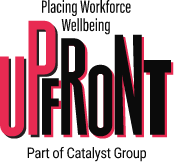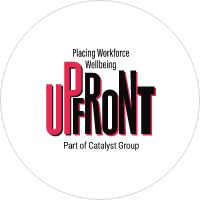In India, health insurance is a critical need, yet it remains a distant dream for many, particularly for small businesses and low-income families. The challenges are manifold: high premiums, complex policies, and lack of awareness. This blog aims to shed light on the importance of accessible health insurance, the barriers faced by these vulnerable groups, and potential solutions to bridge the gap.
The Importance of Health Insurance for Small Businesses
Small businesses form the backbone of the Indian economy, contributing significantly to employment and economic growth. However, providing health insurance for their employees often poses a significant challenge. Health insurance for small businesses is not just a benefit; it is an essential component of employee welfare and productivity.
Health insurance ensures that employees can access necessary medical care without the burden of exorbitant out-of-pocket expenses. For small businesses, this translates to fewer sick days, higher employee morale, and increased loyalty. Moreover, offering health insurance can be a crucial factor in attracting and retaining talent in a competitive job market.
Challenges Faced by Small Businesses in Accessing Health Insurance
Despite its importance, small businesses in India face several hurdles in providing health insurance to their employees. One of the primary obstacles is the cost. Premiums for comprehensive health insurance plans can be prohibitively expensive, especially for small enterprises with limited financial resources.
Another challenge is the complexity of insurance policies. Many small business owners find it difficult to navigate the myriad options available and to choose a plan that best suits their needs and those of their employees. Additionally, small businesses often lack the bargaining power to negotiate favourable terms with insurance providers, making it even harder to secure affordable coverage.
Affordable Health Insurance for Low-Income Families
Low-income families are among the most vulnerable when it comes to healthcare access. The lack of affordable health insurance for low-income families means that many are forced to choose between essential medical care and other basic necessities. This precarious situation not only affects their health but also perpetuates the cycle of poverty.
Affordable health insurance also provides financial protection against the high costs of medical treatment, reducing the likelihood of falling into debt due to health-related expenses. It also ensures that individuals can access preventive care, which can help detect and treat health issues before they become severe and more costly.
Barriers to Affordable Health Insurance for Low-Income Families
The barriers to accessing affordable health insurance for low-income families are multifaceted. High premiums are a significant deterrent, as many low-income households cannot afford the cost of even the most basic health insurance plans. Furthermore, there is often a lack of awareness and understanding of health insurance among low-income communities, leading to low uptake even when affordable options are available.
Another critical issue is the accessibility of health insurance products. Many insurance providers are concentrated in urban areas, making it difficult for rural and remote populations to access their services. Additionally, the bureaucratic processes involved in enrolling in and claiming health insurance can be daunting for individuals with limited education and resources.
Solutions to Bridge the Gap
Addressing these challenges requires a multifaceted approach involving the collaboration of various stakeholders, including the government, insurance companies, and non-governmental organisations.
One potential solution is to create tailored health insurance plans specifically designed for small businesses and low-income families. These plans should be affordable, easy to understand, and provide comprehensive coverage. Subsidies or financial assistance could be provided to small businesses and low-income families to help offset the cost of premiums.
Another important strategy is to increase awareness and education about health insurance. Outreach programmes can help inform small business owners and low-income families about the benefits of health insurance, how to choose the right plan, and the steps involved in enrolling and claiming. This can be achieved through community workshops, informational campaigns, and partnerships with local organisations.
Improving accessibility is also crucial. Insurance providers need to expand their reach to rural and remote areas, ensuring that all populations have access to health insurance services. Simplifying the enrolment and claims processes can also make it easier for individuals to access and benefit from health insurance.
The Role of Technology
Technology can play a pivotal role in making health insurance more accessible and affordable. Digital platforms can streamline the process of purchasing and managing health insurance, making it easier for small business owners and low-income families to compare plans, enrol, and file claims.
Mobile health apps and telemedicine services can also provide valuable support, particularly in rural and remote areas where healthcare facilities are scarce. These technologies can enable individuals to access medical advice and services without the need for costly and time-consuming travel.
Community-Based Health Insurance Schemes
Community-based health insurance schemes can be an effective way to provide affordable health insurance to low-income families. These schemes pool resources from a community to provide coverage for all members, spreading the risk and making premiums more affordable. Such schemes can be tailored to the specific needs of the community, ensuring that the coverage is relevant and effective.
Accessible health insurance is essential for the wellbeing of small businesses and low-income families in India. By addressing the barriers of cost, complexity, and accessibility, and leveraging technology and community-based approaches, it is possible to bridge the gap and ensure that everyone has access to the healthcare they need. Affordable health insurance for low-income groups and small businesses are not just benefits; they are vital for a healthier, more equitable society.


